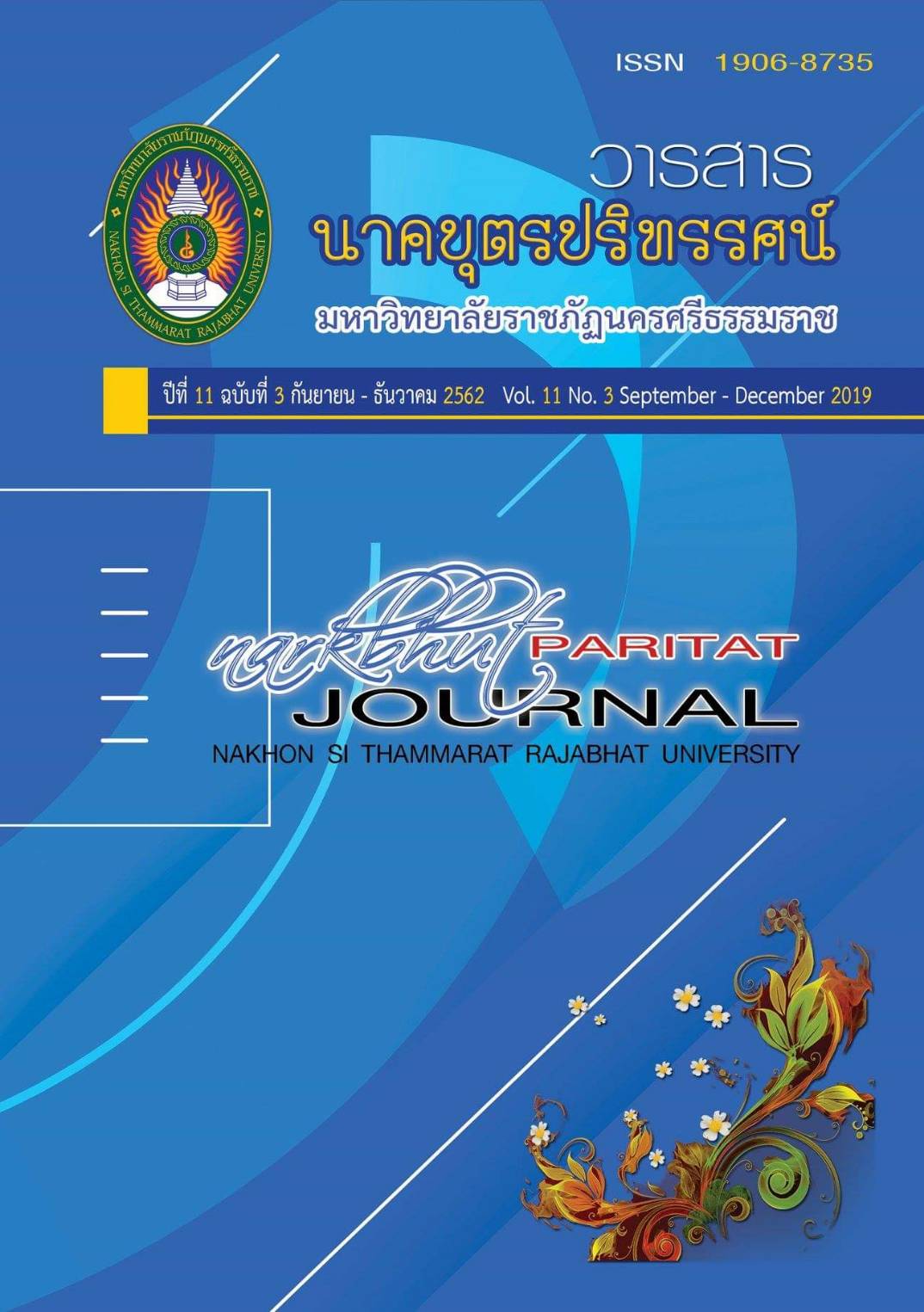นโยบายการจัดการขยะในประเทศไทย
Main Article Content
บทคัดย่อ
Waste management is a noteworthy issue for every country, different waste consistently growing every year and every country and nearby government needs to deal with it by using a policy. For Thailand Waste Management Policy Is a strategy that is significant both at the national and nearby levels however there are as yet encountering urban waste issues and there is still no powerful waste administration.
Article Details
ประเภทบทความ
บทความวิชาการ
เอกสารอ้างอิง
Anderson, J. E. (2006). Policy formation problems, agendas, and formulation, Public policy
making: An introduction (2nd ed.). Boston: Wadsworth Cengage Learning.
Department of Environment, Bangkok Metropolitan Administration. (2005). Bangkok State of
the Environment 2005. Bangkok: Author
Forester-Miller, H., & Rubenstein, R. L. (1992). In Group counseling: ethics and professional
issues. In D. Capuzzi & D. R. Gross (Eds.) Introduction to group counseling (pp.307–323).
Denver, CO: Love Publishing Co.
Inpin W. (2011). Decentralisation and Policy Implementation: Thai Development Plans and
Subdistrict Administrative Organisation (SAO) in Chiang Rai. Retrieved, 2018 from
http://researchcommons.waikato.ac.nz/bitstream/handle/10289/5948/thesis.pdf?seque
nce=3&isAllowed=y
Inpin, W. (2012). Factors affecting the implementation of thailand’s policy to decentralize
Government In 1st Mae Fah Luang University International Conference 2012.
Institute for Global Environmental Strategies. A guide for sustainable urban organic waste
management in Thailand (2012).Report on IGES policy report 2012-02. Retrieved, 2012
from http://pub.iges.or.jp/modules/envirolib/upload/4130/attach/Attachment5
Kaosol, T. (2009). Sustainable solution for municipal solid waste in Thailand. World Academy
of Science, Engineering and Technology 60p. Retrieved, 2018 from http://www.swm.
eng.psu.ac.th
Kamaruddin S. M. & Omar D.B. (2011).Waste management and the role of waste administrators
in Selangor, Malaysia. In WIT Transactions on Ecology and The Environment, (pp.173–
181). Southampton: WIT Press.
King Prajadhipok‘s Institute. (2002). Decentralisation and Local Government in Thailand: The
KPI Congress III. Bangkok: Tammada Place Ltd.
Krueathep W. (2004). Local Government initiatives in Thailand: Cases and lessons learned. Asia
Pacific Journal of Public Administration, 26(6), 217-239.
Renbi B. & Mardina S. (2002) Report the practice and challenges of solid waste management in
Singapore. Waste Management, 22, 557 –567.
Sukholthaman P. (2012). Bangkok recycling program: An empirical study of an incentive–based
recycling program. Retrieved, 2018 from http://repository.upenn.edu
The Pollution Control Department. (2011). Draft of National 3Rs Strateg. Report on
SituationAnalysis of Existing Solid Waste Management System. Retrieved, 2018 from
http://www.unep.or.jp/ietc/spc/activities/GPWM/table3_projects.asp
Vongsurakrai, S. (2013). The Impact of Local Politics and Factors Contributing to the Success
of Solid Waste Management Implementation in KohSamui, Thailand (Doctoral
dissertation, National Institute of Development Administration). Retrieved, 2018 from
http://libdcms.nida.ac.th/thesis6/2013/b179495.pdf
Wiriyanont, S. (2015). A Study of public and private partnerships In waste management: A case
study of Nonthaburi province. Journal of Technical Education Development,93(1),
45–52.
Wongputarugsa, A. (2010). Public Participation in Community-based Solid Waste Management
of Somwang Community, Songkhla Municipality (Master’s thesis). Retrieved, 2018 from
http://fs.libarts.psu.ac.th/research/conference/proceedings-2/1pdf/006.pdf
making: An introduction (2nd ed.). Boston: Wadsworth Cengage Learning.
Department of Environment, Bangkok Metropolitan Administration. (2005). Bangkok State of
the Environment 2005. Bangkok: Author
Forester-Miller, H., & Rubenstein, R. L. (1992). In Group counseling: ethics and professional
issues. In D. Capuzzi & D. R. Gross (Eds.) Introduction to group counseling (pp.307–323).
Denver, CO: Love Publishing Co.
Inpin W. (2011). Decentralisation and Policy Implementation: Thai Development Plans and
Subdistrict Administrative Organisation (SAO) in Chiang Rai. Retrieved, 2018 from
http://researchcommons.waikato.ac.nz/bitstream/handle/10289/5948/thesis.pdf?seque
nce=3&isAllowed=y
Inpin, W. (2012). Factors affecting the implementation of thailand’s policy to decentralize
Government In 1st Mae Fah Luang University International Conference 2012.
Institute for Global Environmental Strategies. A guide for sustainable urban organic waste
management in Thailand (2012).Report on IGES policy report 2012-02. Retrieved, 2012
from http://pub.iges.or.jp/modules/envirolib/upload/4130/attach/Attachment5
Kaosol, T. (2009). Sustainable solution for municipal solid waste in Thailand. World Academy
of Science, Engineering and Technology 60p. Retrieved, 2018 from http://www.swm.
eng.psu.ac.th
Kamaruddin S. M. & Omar D.B. (2011).Waste management and the role of waste administrators
in Selangor, Malaysia. In WIT Transactions on Ecology and The Environment, (pp.173–
181). Southampton: WIT Press.
King Prajadhipok‘s Institute. (2002). Decentralisation and Local Government in Thailand: The
KPI Congress III. Bangkok: Tammada Place Ltd.
Krueathep W. (2004). Local Government initiatives in Thailand: Cases and lessons learned. Asia
Pacific Journal of Public Administration, 26(6), 217-239.
Renbi B. & Mardina S. (2002) Report the practice and challenges of solid waste management in
Singapore. Waste Management, 22, 557 –567.
Sukholthaman P. (2012). Bangkok recycling program: An empirical study of an incentive–based
recycling program. Retrieved, 2018 from http://repository.upenn.edu
The Pollution Control Department. (2011). Draft of National 3Rs Strateg. Report on
SituationAnalysis of Existing Solid Waste Management System. Retrieved, 2018 from
http://www.unep.or.jp/ietc/spc/activities/GPWM/table3_projects.asp
Vongsurakrai, S. (2013). The Impact of Local Politics and Factors Contributing to the Success
of Solid Waste Management Implementation in KohSamui, Thailand (Doctoral
dissertation, National Institute of Development Administration). Retrieved, 2018 from
http://libdcms.nida.ac.th/thesis6/2013/b179495.pdf
Wiriyanont, S. (2015). A Study of public and private partnerships In waste management: A case
study of Nonthaburi province. Journal of Technical Education Development,93(1),
45–52.
Wongputarugsa, A. (2010). Public Participation in Community-based Solid Waste Management
of Somwang Community, Songkhla Municipality (Master’s thesis). Retrieved, 2018 from
http://fs.libarts.psu.ac.th/research/conference/proceedings-2/1pdf/006.pdf


